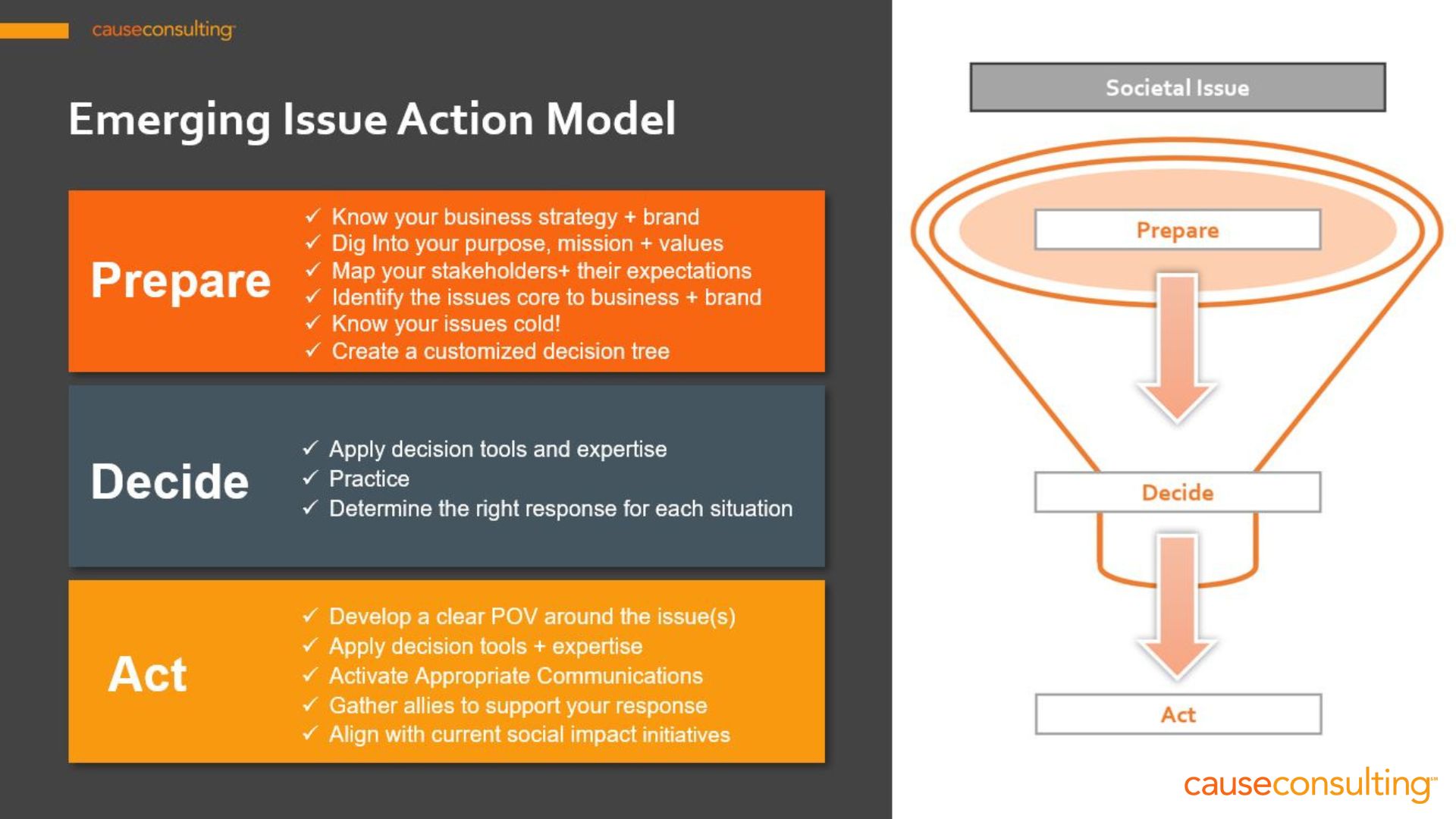
When and how should companies take a stand on societal issues?
Business, corporate social responsibility (CSR), and environmental, social, and governance (ESG) leaders face an ongoing challenge to respond to various trending and often urgent social issues and crises coming across their desks. This includes natural disasters and conflict, as well as issues like abortion, affirmative action, and climate change, among others.
The intricate and shifting societal issue landscape is constantly being reshaped by factors like political polarization and stakeholder expectations. It is critical that companies create and activate a decision-making approach to anticipate what is coming around the bend, understand the issues at hand, and have the tools and processes in place to take appropriate action.
Our three-step Emerging Issue Action Model: Prepare, Decide, Act, can be utilized by executive teams to diagnose situations and determine appropriate types of action around all types of societal issues. Elements of the model, such as issue research, stakeholder maps, and Decision Trees, are essential tools for taking authentic, intentional stance.
The graphic below summarizes key elements of our Emerging Issue Action Model.
To dive deeper into this topic, read Nikki Korn’s blog about teaching the Emerging Issue Action Model during an interactive workshop at the ACCP Conference. Also, Mark Feldman’s blog summarizes learnings from the half-day Business Leader Summit he facilitated at Engage for Good that discussed when and how to take a stand.

